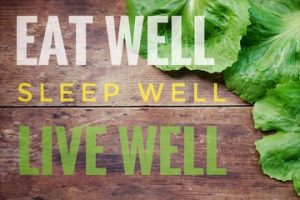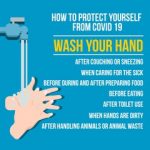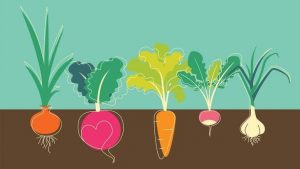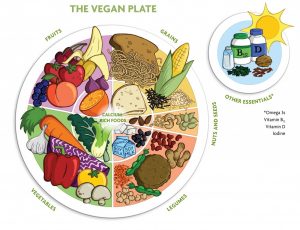This blog post has been kindly written by Maleeha Ali (Student at the University of Leeds) and edited by Debra Williams (Registered Dietitian).
Introduction
The nutritional supplement industry was estimated to be worth an astonishing £102.33 billion in 2020 and this industry is continuing to grow at a rapid rate. Nutritional supplements take many different forms each serving a different purpose. It is important to take a food first approach so that nutrients from food are encouraged first before adding in a supplement. Supplements have distinctive functions thus aren’t suitable for all individuals and may even cause harm if consumed incorrectly. This blog post is for information only and aims to clarify any confusion regarding nutritional supplements. If you have questions about your supplement needs, speak with a qualified health professional that can assess your diet considering your medical history and any relevant blood test results.
So, what are the different types of supplements?
Before we get started, it is first necessary to define exactly what a nutritional supplement is. According to the Food Standards Agency, nutritional supplements are described as ‘a concentrated source of a vitamin, mineral, or other substance with a nutritional or physiological effect, alone or in combination and is sold in dose form.’ They can be found in many forms including powder, tablets, capsules, liquid, and even gummies.
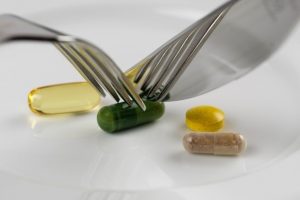
Vitamins and minerals are micronutrients required by our body for various functions. Supplements can be used to treat a deficiency or to help an individual meet a specific nutrient need. Other popular supplement categories include herbal supplements, weight loss supplements, protein powders, and sports nutrition supplements such as BCAAs, creatine, and pre-workout powders. Some common supplements taken in the UK include Vitamin D, B12 and folic acid as well as other products such as protein powders and probiotics.
Who needs supplements?
There is no specific criteria on who requires nutritional supplements; this will vary greatly depending on individual factors such as lifestyle, diet, genetics etc. The list below describes some common supplements and explains who may require them.
Vitamin D: In the UK, the limited sunlight means vitamin D intake is sometimes insufficient and thus children and adults are recommended to take vitamin D supplements to prevent any deficiency forming.
Protein Powders: Individuals who are building muscle need to increase their protein intake and may achieve this via protein powders and shakes. The increased intake will help with muscle growth and repair.
Folic Acid: folic acid supplements are standard for pregnant women and women who plan to become pregnant to reduce the risk of spina bifida.
Vitamin B12: many individuals can meet their nutrient needs through a balanced diet, however there are certain scenarios where deficiencies may occur. For example, supplementation of vitamin B12 is often helpful for those following a vegetarian or vegan diet.
What are meal replacements?
These are usually low-calorie items that are fortified with essential macronutrients and micronutrients that aim to promote weight management and/or accommodate weight loss. They usually come in the form of drinks, bars, or soups.
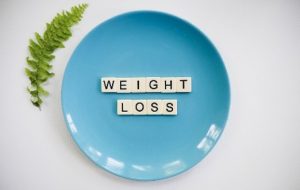
Studies have found that meal replacement products are often preferred by individuals trying to lose weight as there is a ‘reduced need to think about food’ as well as no need for ‘portion control and calorie counting’. Astbury et al 2019, found that ‘programmes incorporating meal replacements led to greater weight loss’ and thus deemed them a ‘valid option’ in controlling obesity. Type 2 diabetics may also find meal replacement products beneficial when managing their symptoms (Dasgupta et al 2022). However, it is important to seek advice from a registered dietitian on how long these products can be used for.
What are the risks of supplements?
Many people will decide to take a supplement simply because they saw a targeted ad, or a friend recommended it. This comes with risk! and can often be unnecessary money out of your pocket.
Other risks include:
Drug interactions – some supplements may interfere with pharmaceuticals. For example, Vitamin K can reduce the effectiveness of blood thinners like Coumadin.
Overdosing – more is not always better! Some micronutrients, namely fat-soluble vitamins (vitamins A, D, E, and K), can build up in the body. There are also many supplements that provide very large doses of particular nutrients, which may be dangerous in some cases.
Misleading labels and marketing – Dietary supplements are not well-regulated and manufacturers will often use misleading information to drive sales.
Should you be taking a supplement?
In typical dietitian talk, the answer is that it depends! While there may be benefits for some, there may also be potential risks. If you feel that you may have a nutrient of concern, ask a registered dietitian https://eatwellnow.co.uk/ if you can increase your intake of that nutrient with food first before turning to a supplement.
Further information
For more information on nutritional supplements please read this fantastic BDA food fact sheet https://www.bda.uk.com/resourceDetail/printPdf/?resource=supplements
References
Astbury, NM, Piernas, C, Hartmann-Boyce, J, Lapworth, S, Aveyard, P, Jebb, SA. A systematic review and meta-analysis of the effectiveness of meal replacements for weight loss. Obesity Reviews. 2019; 20: 569–587.
Dasgupta K, Boulé N, Henson J, et al. Remission of type 2 diabetes and improved diastolic function by combining structured exercise with meal replacement and food reintroduction among young adults: the RESET for REMISSION randomised controlled trial protocol. BMJ Open. 2022;12: e063888.


